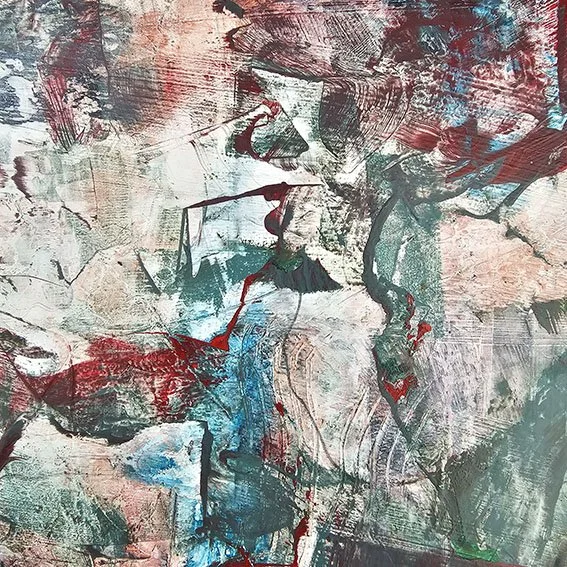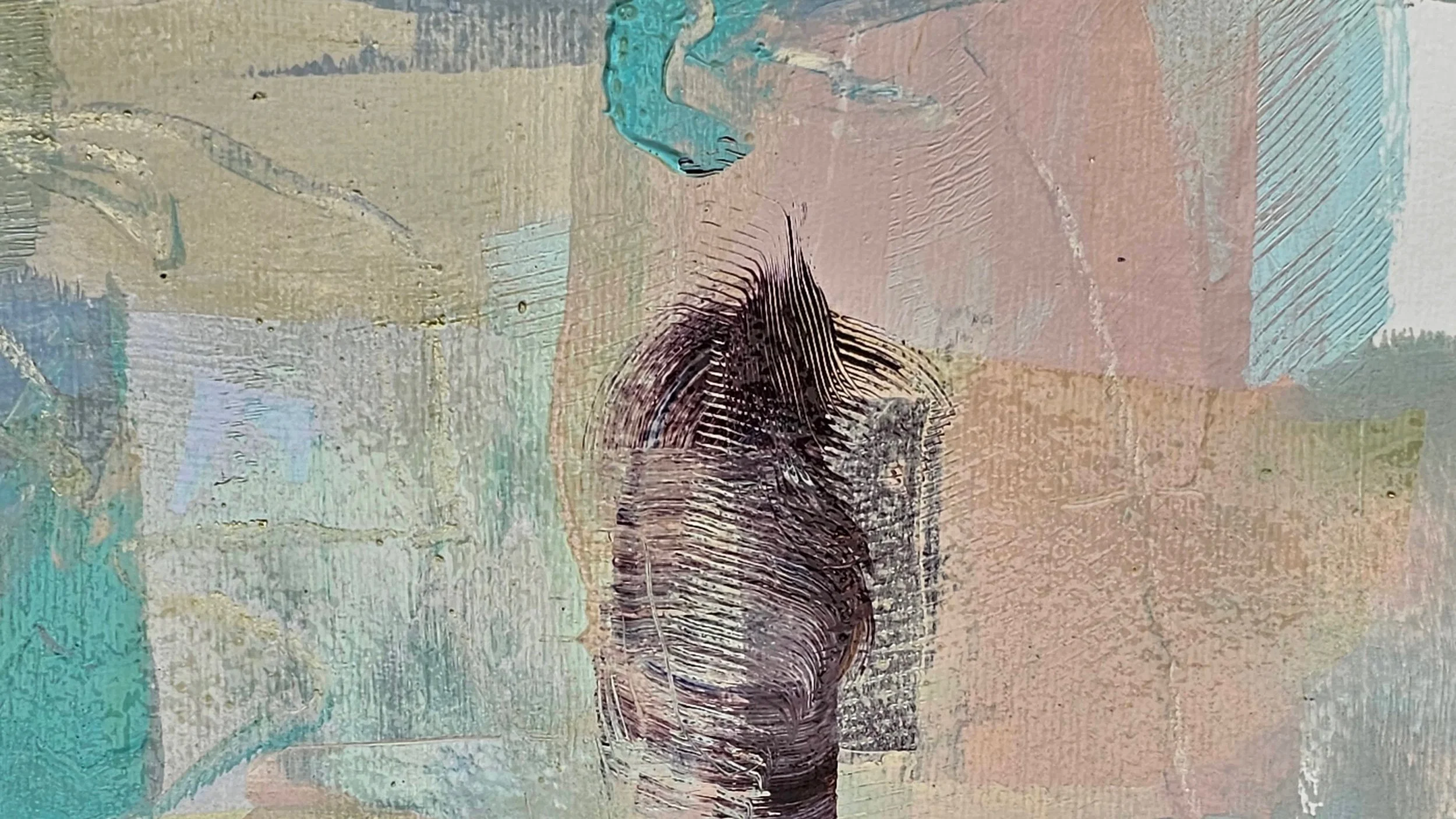Knowing THE STAGES OF A PAINTING gives you a roadmap so you won’t get stuck
When people get stuck in their work it's usually because they are trying to do something when they're not ready or asking the wrong questions at the wrong time in the development of the work.
Once they know at what stage they're at with the work and what they should be focusing on then they know what questions to ask.
For example, if you're at the beginning stage of a painting you don't start analysing whether you've got the colours right, or whether the design is strong. Those are questions for later.
In this week's Vlog I demonstrate what to focus on at the various stages of developing a painting.
Abstract Art Painting Demo with Stencils and Adhesive Frisket Shapes
To ensure my finished paintings have a luscious surface full of surprising paint effects I have found that working in multiples and laying down a foundation of experimenting with different materials and techniques delivers the effects I want in the finished painting.
In this video I demonstrate these techniques as I begin to create 10 abstract paintings at one time. By working in multiples and using glazes and solid paint effects I am able to create a series of work that are unique, all different and yet share the same language.
How to Create a Painting By Playing with Acrylic Paint and Dry Media
The best way to find ideas for paintings is through play. Playing with materials and discovering new effects and then responding to what you see developing in front of you is my painting process. Watch this video as I demonstrate this intuitive process of finding a painting through play. See how long it takes before an idea starts to emerge and I find my direction, and then watch as I fine-tune the painting to finish it.
Why You Should Have a Sketchbook Practice
Sketchbooks, for me, are about recording my own growth as an artist. Trying out new mediums, having fun and exploring, and just seeing what happens when I play and paint.
In this video I take you inside my sketchbook, talk about why it’s an invaluable part of my creative practice, and share what type of book I use and some tips for keeping pages unstuck, so that it can become a treasured account of your life and development as an artist.
Producing A Group of Paintings Together Makes The BEST Artwork
If I could tell you the ONE thing that improved my work the most - this is it. Working on a group of paintings together improves results because what you learn in one painting can be directly applied to others. In this video, I show you how I do this by using 5 paintings in mid-process to demonstrate how ideas can be applied to multiple works and how my paintings took big leaps forward as a result.
EXPRESSIVE PAINTING - How To Love The Accident and Still Maintain Control
How To Start By Playing With Paint and End With A Finished Painting You Love
It’s exciting to start a painting but do you have trouble finishing it? In this video I show you how to start by just playing with media and then a great tip to quickly add interest and intriguing, surprising elements into your work. Then I take you through how to clarify your composition and create a strong finished artwork.
Create Your BEST Paintings with These Simple DIY Shapes
The best art relies on great design. So how do you ensure the design in your abstract painting is strong? In this video, I show you step-by-step a great tip for finding strong design ideas for abstract paintings using work you already have. I’ll show you how to create your own unique shapes and then demonstrate how you can use these to generate ideas for future work.
Overcome the Overwhelm When Starting A Painting with this Simple Process
Mastering Subtle Texture in Your Painting with White Paint and Glazes: Tips and Techniques
In this video, I'll be sharing my top tips for creating beautiful, subtle texture in your paintings using white paint and glazes. By using a light touch with these tips and techniques you can achieve subtle and nuanced effects that elevate your work. I'll also be sharing my go-to technique for harmonizing colors. These techniques create a visually striking effect that pulls your painting together and makes it feel cohesive. I hope this video inspires you to experiment with these techniques in your own artwork!
My Top Tips For Building Incredible Texture In Your Work
How I Developed An Idea From A Finished Painting Into New Art
How to Draw with Expression and Allow the Magic to Happen
Blind contour drawings are when you draw without looking at the paper directly, instead you only look at the paper for short moments. I love this style of drawing to gain freedom from realism and to build more character in the work. In this video I show you how to combine Blind Contour drawing with abstract use of media.
5 Methods to Build Connection with the Title of your Painting
Create Depth and Interest in your Painting with Stencils
This video takes a look at the stencils I made and teaches you how to use stencils to create depth, direction and interest into your paintings. In this video I explain: How to choose colours in order to create contrast and direction in your painting and how to use stencil shapes that mimic negative or positive shapes to create rhythm and interest.
How To Paint A Memory In Under An Hour
In this video, I will take you through the process of creating a painting based on a memory. We will use the technique of building up layers of paint and line to create depth and meaning. This is a very personal project which helps us draw upon our emotions and experiences, this creates something unique and special.
How To Improve Your Painting by Using Contrast
When we're painting, we often struggle to make certain parts of it work. And while struggling with that part, we begin to forget other things around it. But by doing this, we're avoiding making good parts of the picture even better by putting something opposite next to them. In this video I'll explain how you can use this 'opposite' element in your painting to help the good parts of your work shine.
A Journey in Paint & Mixedmedia: Layers of Shape and Line
How to Find the Colour and Shape Heroes in Your Abstract Painting
In this week's Vlog I have made a small painting in my sketchbook following my process of building up layers. But what it demonstrates as well as building an interesting surface, and the introduction of the use of stencils is how to give strength to the hero's in the painting. Prioritizing the colour heroes as well as the shapes and elements in the painting that are important to the success of the composition.





















